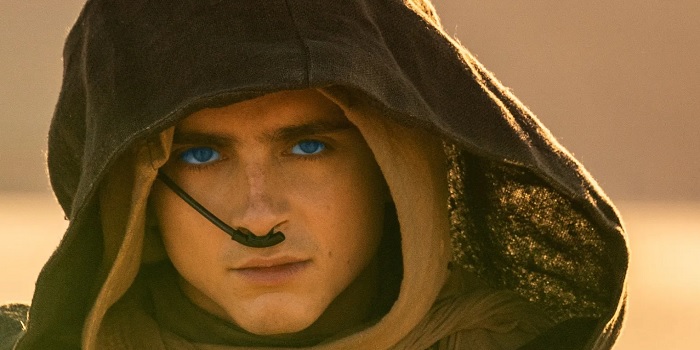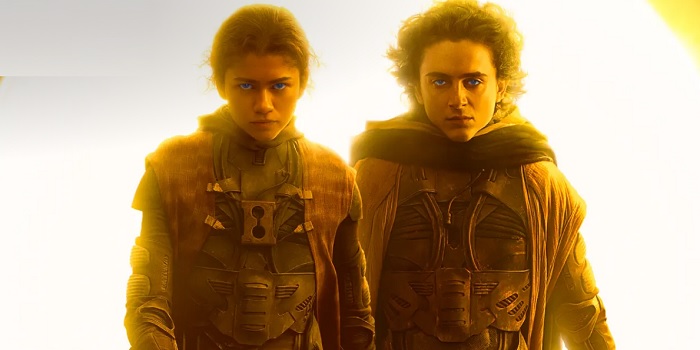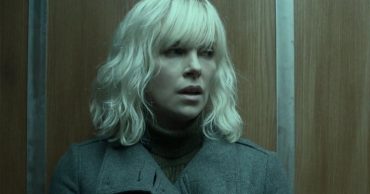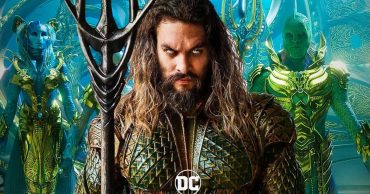Paul Atreides was first introduced to sci-fi buffs in 1963 when Frank Herbert published the first part of his serialized Dune stories in Analog magazine. The character gained more popularity with the publication of the first Dune novel, spawning an acclaimed franchise that includes films, TV shows, and video games. Paul first appeared onscreen in 1984 when Kyle MacLachlan embodied the character in David Lynch’s big-screen adaptation.
Years later, Scottish actor Alec Newman portrayed the actor again onscreen. This was for Syfy’s Dune miniseries in the 2000s – Frank Herbert’s Dune (2000) and its sequel Children of Dune (2003). Timothée Chalamet’s interpretation of Paul Atreides in the Denis Villeneuve adaptations has stirred renewed interest in the Dune story. With a third film in the works, the Villeneuve adaptations aim to deliver a decisive take that reflects Herbert’s submissions about the complex character. In the meantime, here’s an insightful exposition of the protagonist.
Background And Purpose Of Paul Atreides

Dune: Part One introduces Paul Atreides as the heir of a noble family (House Atreides) caught up in a grand scheme by Emperor Shaddam IV, the supreme ruler of the universe. Wary of House Atreides’ growing influence, the Emperor devices a struggle between the Atreides and House Harkonnen over Arrakis, the desert planet housing the universe’s most valuable natural resource. The Atreides’ patriarch Duke Leto Atreides loses his life amid the power struggle.
However, the Emperor’s aim to eradicate the family fails as Paul and his mother Lady Jessica evade death. The destruction of his house gives Paul Atreides a purpose as the plot unfolds, forcing the character to develop and drive the narrative. Meanwhile, his troubling visions about the future and a mysterious woman begin to validate upon meeting Chani and the Fremen tribe.
Examining The Character’s Rise To Influence

Paul Atreides’ purpose transforms him into a willful character determined to address the injustice against his family. He gains prominence to push his agenda with his acceptance among the Fremen tribe, who regard him as a Messianic figure promised in a prophecy to lead the Arrakis to freedom and prosperity. While Chani, the lady from his dream is distrustful of the prophecy, she finds comfort in Paul’s assertion of his disinterest in ruling the tribe. Although the protagonist is resolute in his quest for revenge against the conspirators who brought his family to ruins, he’s cautious about his visions of war.
That, inspires his decision to marry Emperor Shaddam’s daughter, hoping it would avert the war that might arise from the Emperor’s betrayal of his family. Also, he refuses to go south to avoid his apocalyptic visions hinting at a war his rise to power would trigger if he heads south. He eventually does and drinks from the Water of Life, gaining a clearer vision of his lineage and fate. With that, Paul Atreides resolves to lead the Fremen, embracing the prophecy and what he deems the only path to salvation for humanity.
Paul Atreides Will Evolve Into An Antihero In Dune 3
Beginning his journey with a noble quest of bringing peace to Arrakis, Paul Atreides transforms into a character with a potential for evil in Dune 2. The part two ending of Villeneuve’s adaptation depicts a shift in the protagonist’s moral compass, affirming him as an antihero poised to descend into villainy. First, he threatens the Fremen with his clairvoyance and then leads the tribe to the holy war he strived to avoid after the other great houses refuse to recognize his ascendency as the new Emperor. Villeneuve has confirmed that the next Dune movie will explore Paul Atreides’ dark transformation to show the character’s descent into villainy, just as Herbert captured in Dune: Messiah, the second novel in the Dune series.
The director argued that Herbert was disappointed with readers’ perception of Paul Atreides as a hero when the first book was published. “There was something about the fact that Paul was seen as a hero that he didn’t like,” Villeneuve told Inverse. “The book was a warning about charismatic leaders, and he wanted Paul to be more perceived as a dark figure,” he added. In all, Dune 2’s ending has set up the premise that ultimately defines the character. He will become the very evil he was up against. Check out 8 things you didn’t know about Dune’s Denis Villeneuve.
 Follow Us
Follow Us



